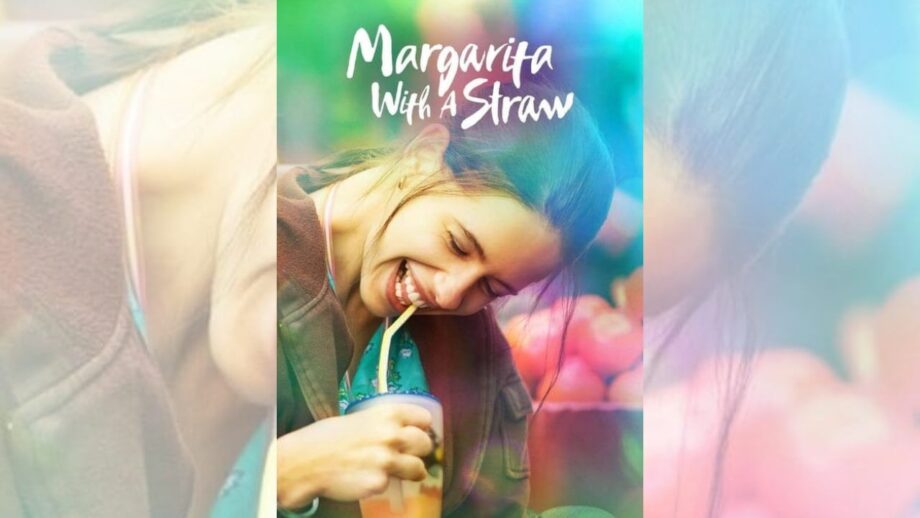At the end of Shonali Bose’s Margarita With A Straw one wasn’t sure whether one had just watched a film about a very special life of a specially abled girl who can’t move a limb without her mother’s help, but has the hots for at least two boys and one woman. Or was one watching an extraordinary rendition of the mother-daughter relationship done in shades so distinctive and deep, you leave behind a part of your being with the film when you leave the theatre even as you take home with you something invaluable.
Margarita With A Straw, so named because its cerebral palsy-afflicted stubbornly spirited heroine would have the cocktail in a tumbler with a straw, but have she will, is a film that leaves you profoundly enriched. The film creates a crisscross of complicated relationships among human beings who seek normalcy in their strenuously challenged lives both within their homes and outside.But the beauty of it is the tangles in which human beings find themselves in their quest for kinship tends to solve itself in the end. It’s the way life works, so what’s the big deal? Says this remarkable film.
Shonali Bose’s film never stops to wonder what Laila’s life would have been like had she been ….well, normal. Being normal! Now, that’s a question which the film’s brilliantly written script, never stops to entertain. Non-judgmental to the core and never fearful of peering into forbidden areas of the human psyche (in one of the many bravely executed sequences, Laila pleasures herself away from her mother’s watchful eyes after watching porn clips on her laptop), Margarita With A Straw blends commentary on dysfunctional lives with that sense of profound yearning which comes to any individual who aspires to go beyond her allotted space in life.
Laila’s aspirations take her through a geopolitical emotional and sexual journey that finally leaves her, and us, wiser. All three levels of Laila’s education are textured into the plot with a minimum of fuss. Shonali Bose cuts through moments and montages from Laila’s life with luminous austerity. We see more than what meets the eye, and not only because the film’s editors (Monisha Baldawa and Bob Brooks) have done their jobs effectively, but also because this film believes in saying a lot about the quality of human life without wasting time in self-pity.
Tears, you will see, don’t get a chance to roll down cheeky cheeks here. It is precisely because the film refuses to ruminate on the tragic grandeur of life that it creates a sense of unassuming dignity in the lives that we see on screen, none more bravely and emphatically dignified in adversity than Laila.As played by the exceptionally gifted Kalki Koechlin, Laila is bit of a tease….not just with men but with life as well.
Kalki makes every encounter in Laila’s life from Delhi University to New York University special and memorable. I specially cherish the mother-daughter scenes between Revathy and Kalki. They are heartwarming and heartbreaking because they never forget to be completely truthful to the given (tragic) context while striving to be supremely cinematic.This is as opportune a moment as any to say Kalki in the central part shines in a space where her character’s disability assumes no pre-ponderance. This is a major transcendental triumph for the actress, as much of her speech is spoken in a slur. Kalki takes Laila beyond the world of words. It is those eyes. The goddamned wounded eyes. They serve as a window to Laila’s soul.
It was Aamir Khan’s idea to re-christen Shonali Bose’s film as Choone Chali Aasman. But the film went back to its original title Margarita With A Straw.
The censor board suggested several crucial cuts. But Shonali Bose stood her ground. What Shonali was jubilant about was that the crucial lesbian love-making scene remained. “There was no way I was going to let even a single moment of that go.When the censor board’s Examining Committee wanted that sequence reduced I was shocked . How can they tell me that the crux of my film is invalid? I made this film. I decide what is important.But thankfully they allowed me the freedom to have my say.In a country where homosexuality was still illegal when I made this film,it is no small victory to allow two women to make love .”
Indian cinema is not a stranger to lesbian liaisons. Shabana Azmi and Nandita Das played lesbians in Deepa Mehta’s Fire.
Kalki had to prepare for months for the part, and that included visiting a disability centre for a period of time.Says Kalki, “Comparing me to Daniel Day-Lewis is raising the bar too high. But I worked hard to give it my best shot.It’s been tough work getting right the physicality of the character with Cerebral Palsy .I worked for six months at a centre for disability in Bandra(Mumbai) called Adapt.”
Kalki worked closely with a person suffering from Cerebral Palsy. “She is a lady named Malini Chib-Alur. She is one the prominent members of the disability centre.She has Cerebral Palsy.”

